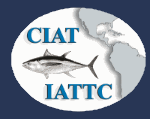- Home
- Research
- Projects
- Improve the yellowfin tuna stock assessment:Explore alternative hypotheses of stock structure and life-history for YFT in exploratory stock assessment models
- Objectives
- Improve the yellowfin tuna stock assessment by exploring alternative hypotheses of stock structure and life-history
- Background
- A benchmark assessment was conducted in 2020 with 48 models representing several hypotheses for the stock. The main overarching hypotheses, stock structure, was not possible to address extensively
- Relevance for management
- The stock assessment is used to provide management advice
- The duration of recommended seasonal closures is based on risk analyses of bigeye and yellowfin that use the assessment results
- Improvements in the yellowfin assessment will make the staff’s management advice more accurate and precise
- Duration
- 2021-2025
- Workplan and status
- 2021: Re-evaluate the natural mortality assumptions
- 2022-23: Explore different hypotheses on stock structure
- 2022: Workshops to finalize improvements to the longline CPUE and length-composition data (Projects H.1.e – ext and H.1.f)
- 2023: Re-evaluate the model assumptions and implement exploratory models
- 2024: Exploratory assessment
- 2025: Benchmark assessment
- Deliverables
- Report(s) to SAC in 2022, 2023 and 2024
- Updated date: 01 Aug 2024
- Progress summary for the reporting period
- The conceptual model (CM) for yellowfin tuna in the EPO was updated based on extensive literature review. The CM relies strongly on environmental forcing. The work focused on exploratory analyses. Tree analysis on length composition data using environmental gradients as explanatory variables were done. External reviews for data and modelling aspects of the tropical tuna stock assessments took place in 2023. The staff completed a benchmark assessment for yellowfin tuna in 2020 and another was planned for 2024. However, due to unresolved issues with the assessment, a benchmark was not completed in 2024 and an exploratory assessment was developed. A benchmark assessment is planned for 2025. Improvements in the yellowfin assessment were made to natural mortality, growth, and how fisheries are modelled. However, uncertainty remained in the stock structure. In 2024, an exploratory stock assessment was developed using these improvements that focus on data from the core area of the dolphin (DEL) fishery. Sensitivity to the assumption about the stock structure and the presence of large fish were also carried out. Stock status indicators based on purse-seine fishery associated with dolphins and longline CPUE and mean length were evaluated for five areas to investigate the possibility of local depletion. Further research and data collection, particularly about stock and spatial structure, are needed to produce reliable assessments and management advice in the future. The project is extended for one more year to address the stock structure uncertainties.
In addition, in 2023-2024 an index of abundance for yellowfin tuna based on the operational-level logbook data from the Japanese longline fleet were obtained in collaboration with a visiting scientist from Japan. That indices cover mostly the area in the southwest of the EPO, which may comprise a different stock. The index presented high uncertainty in recent years due to the small sample size related to de decrease of effort of the Japanese fleet.
- Challenges and key lessons learnt
- The main challenge is the modelling of the spatial structure for yellowfin tuna, as there is not enough tagging data to inform it. The workshop on longline CPUE and length-composition data did not take place for lack of funding, and the work continues through collaborations with some CPCs
- SAC-14-06 YFT exploratory analysis
- RVMTT-01-REP External review of modelling aspects for stock assessments of tropical tuna in the eastern Pacific Ocean (Nov 06-10, 2023)
- RVDTT-01-REP External review of data used in stock assessments of tropical tuna in the eastern Pacific Ocean (Oct-02-06, 2023)
- SAC-15-INF-F Stock status indicators (SSI) for tropical tunas in the EPO
- SAC-15-03 Exploratory analysis and stock status indicators for yellowfin tuna in the EPO
- Comments
- The staff will start collaborative work with Japan to analyze the logbook data, which will initiate after SAC-14 with a 2 month visit of a Japanese scientist.

